CEEC prime ministers want cooperation with China
Prime ministers of Romania, Albania, Slovakia and Bosnia-Herzegovina said in Belgrade that good projects are "key for further cooperation with China."
Wednesday, 17.12.2014.
12:26

CEEC prime ministers want cooperation with China
At the Third Meeting of Heads of Government of China and CEECs, Romania's Prime Minister Victor Ponta noted that since the 2013 Bucharest summit, the countries achieved good results and that now they should set objectives for the future.There have been good and major energy projects with Chinese companies, he said, adding that efforts should be put in new and visionary projects.
Ponta underscored that the partnership with China represents an advantage for the entire region, a adding that it is the task of the CEECs countries to develop new projects and find a way for being effective in their implementation.
He said that Romania has two important strategic goals - to promote the strengthening of the strategic partnership between the EU and China, as an EU member state, and to promote the region, particularly EU aspirant countries.
Romania has always been committed to backing the aspirations of EU candidate countries to join the EU as soon as possible, which is also in the interest of the EU, he said.
Albania's Prime Minister Edi Rama thanked his Serbian counterpart for a hearty welcome, and the Chinese prime minister for an inspirational speech.
It is still winter, but it is warmer for us, and I hope this is not another illusion, as we had lots of them along our path toward changes in previous decades, Rama said.
He said that a new chapter has been opened in the region, and that it is necessary that this be a chapter of prosperity.
The reforms have been taken across the region; they are painful and difficult, and countries have no necessary capacities left, the Albanian prime minister said.
He noted that the region has been put in a rather difficult position due to the EU's enlargement fatigue.
We are also facing much impatience in our countries, which we can call 'patience fatigue'. I hope that, thanks to the Chinese government, this regional initiative will help us advance faster, to the benefit of all, Rama said.
Chairman of Bosnia-Herzegovina's Council of Ministers Vjekoslav Bevanda pointed to the importance of cooperation between China and CEECs.
At the time, when a significant part of the world is in conflict and war, we are investing efforts in the other direction, he underlined, adding that this is the extended arm of friendship - the arm that brings two continents together.
Bevanda said he is glad that the meeting is this year being held in Bosnia's neighboring country that is going through complex processes, political, economic and social reforms.
I think very highly about the cooperation between China and BiH so far, which had an epilogue this year with the agreement from the preferential credit line of USD 800 million, he said.
Slovak Prime Minister Robert Fico spoke about planned projects which that country has with China, noting that they will together build a hydropower plant in Slovakia, among other things.
Fico noted that 2015 is the China-CEEC tourism year, and voiced the hope that the number of Chinese tourists in CEECs will increase, and that there will be more sister cities in Europe and China.
Europe needs cooperation with China
Prime ministers of Hungary, the Czech Republic and Bulgaria and a deputy prime minister of Croatia have agreed that Europe needs cooperation with China.
Hungary's Prime Minister Viktor Orban said that the region had a good future, with a higher growth rate than the rest of the continent, which was encouraging.
The changes happening in Central and Eastern Europe should bing more security and competitiveness to Europe, he stated.
The EU should realize that it would make a huge mistake if it did not pursue cooperation with the most developed countries of the world.
It is in Europe's interest to build the closest possible relations with China, he stressed, adding that the countries of Central and Eastern Europe knew well what was in their interest and that China wanted to bring benefits to Europe.
The region wants to secure the fastest possible transport of goods from Greece to Central Europe, so an agreement will be signed on the modernisation of the railroad running from Budapest to Belgrade, which will be done with technical and expert assistance from China, and this railroad will connect Greece and Macedonia with Central Europe, he remarked.
Orban noted he was pleased that the Chinese development bank had decided to have an office in Budapest.
Czech Prime Minister Bohuslav Sobotka said the results of the activities between China and 16 countries of Central and Eastern Europe were encouraging, especially in trade and investments.
He pointed out the importance of cooperation between the countries taking part in the summit, adding that the Czech Republic was very interested in having Prague host the next year's summit.
Croatia's Deputy Prime Minister and Foreign Minister Vesna Pusic said the development and strengthening of cooperation between China and the countries of Central and Eastern Europe was helping the region's economic growth.
Croatia realises that the cooperation between China and the countries of Central and Eastern Europe has matured, she said, adding that many new ideas and projects had been presented at the summit.
This cooperation should, however, complement the overall cooperation between China and the EU, she pointed out.
She agreed with the statement of Romania's Prime Minister Victor Ponta that the relations should be developed in a way that would facilitate EU integration in the region.
It is a task that will benefit everyone because it will boost political stability to the region and make its countries reliable and stable economic partners, she noted.
She sees possibilities for cooperation between China and Croatia in the exploitation of oil and gas, among other things. There is an option to use Croatia to produce gas for the EU market, because transport would be cheaper, considering Croatia's proximity to the European market, Pusic stated.
Bulgaria's Deputy Prime Minister Daniela Bobeva said the cooperation between China and 16 countries of Central and Eastern Europe had so far proven beneficial since it had resulted in dialogue at a high political level.
Bulgaria wants to keep that momentum and use the existing potential, she stated, adding that a large number of companies interested in partnership and cooperation were present at the Economic Forum/
She said Sofia would like to host the next summit between China and 16 countries of Central and Eastern Europe in 2016.
The prime ministers of Montenegro, Latvia and Lithuania agreed during the summit in Belgrade that China and countries of Central and Eastern Europe (CEE) nurture a quality high-level cooperation which is developing dynamically to the benefit of all relevant sides.
Montenegrin Prime Minister Milo Djukanovic stated on Tuesday that the meetings of heads of government in the 16-plus-1 format have already become recognisable in Montenegro as transparent and focused on current economic topics and projects.
Although the initiative was officially established only a few years ago, it is a positive fact that tangible and visible results of cooperation between China and CEE countries can be discussed today already, he said.
After the restoration of independence, Montenegro has been committed primarily to economic development as it is prudently and dynamically working toward the EU and NATO goals, Djukanovic said.
He noted that although the smallest member in the club, Montenegro is one of its most active participants, and noted that the country has used almost 10 percent of all allocated preferential loans for the region.
We participated in almost all meetings organized so far and we additionally encouraged Chinese companies to invest in Montenegro, and we also prompted our companies to export their products to China, Djukanovic said.
He noted that in keeping with the national development plan, natural potentials, investors' interests and long-term goals, the priorities in Montenegro's development comprise infrastructure, energy, tourism and food production.
Djukanovic noted that he had the pleasure to promote the project of the Bar-Boljare highway with Chinese partners two days ago, when he announced the beginning of construction of its first section.
The project is being realised together with prominent companies from China, China Communications Construction Company and China Road and Bridge Corporation, with the support of the Chinese government and China's Exim Bank on favorable terms, the Montenegrin prime minister said.
He noted that Montenegro is very interested in the reconstruction of the Belgrade-Bar railroad and valorization of the Port of Bar potentials.
We see railroad recovery as part of the wider concept that follows from the already planned reconstruction project of the Belgrade-Budapest fast track, Djukanovic said.
This will set up better transport connections between Montenegro and the region and connect them to European corridors, and our Chinese partners will be able to sell their products easier through additionally reinforced Mediterranean region and CEE countries, he said.
Latvian Prime Minister Laimdota Straiujuma expressed gratitude to the hosts for organising the meeting and thanked China for its initiative to conduct a dialogue and promote cooperation in the 16-plus-1 format.
The results of the meeting include a reinforced dialogue, beginning of several important projects and signing of agreements in various cooperation sectors.
Straiujuma said that the 16-plus-1 format is developing dynamically and is becoming a regular part of member countries' operation which is beneficial for all sides.
She pointed to the importance of setting up connections between China and Europe through continental corridors, and noted that Latvia is ready to organise the summit in 2016.
Lithuanian Prime Minister Algirdas Butkevicius said that Serbia is a credible country and is developing a positive business climate, and expressed gratitude to Prime Minister Vucic for gathering leaders of CEE countries in Belgrade where they had a chance to exchange experiences and discuss projects which will bring benefits to businessmen, companies and countries.
He stated that strengthening of the dialogue in the region is necessary and added that there is major potential for cooperation between China and CEE countries.
This is also confirmed by the fact that a number of investment projects were launched in the second half of the year, Butkevicius said.
Macedonian and Slovenian prime ministers and vice prime minister of Poland said in Belgrade that cooperation between the countries is important for development of regional potentials.
Macedonian Prime Minister Nikola Gruevski stated late on Tuesday that the summit is very important for the realization of significant projects in infrastructure, industry, energy and tourism.
Gruevski said that Macedonia has achieved considerable growth in 2014 and that it is now focusing on capital investments such as the construction of three highways and the railroad section to Bulgaria.
He noted that the three highways are being built in cooperation with China, and added that the value of the investment adds up to EUR 600 million.
Underscoring that Macedonia has favorable conditions for investments, Gruevski listed the low business costs and qualified work force, and added that Macedonia will continue working on attracting foreign investments.
Over 25 foreign companies began investing in our country or have announced their investments over the past ten months, he said.
Gruevski noted that Macedonia's strategic commitment is embodied in constant improvement of the business environment and investments in capital infrastructure.
We are also focusing on investments in energy, modernization, agriculture and continuation of reforms, and we are interested in and willing to conduct projects in the regional context, Gruevski said.
Deputy Prime Minister of Poland Tomasz Siemoniak stated that the 16-plus-one format is considerably contributing to the relations between Europe and China, adding that it is also important for global development and contributes to security in the neighborhood.
Speaking about the Economic Forum, Siemoniak expressed the belief that potentials of all sides in the framework need to be recognized and added that all opportunities for cooperation should be exploited.
Slovenian Prime Minister Miro Cerar said that China and the EU have the same goals, and added that the task of the governments of countries participating in the summit lies in identifying additional possibilities for cooperation and providing a joint response to challenges.
He noted that the countries should not hold onto a narrow definition of economic cooperation and should instead deal with global issues such as education and environmental protection.
Cerar also underscored that countries participating in the summit have advantages in various areas and can complement each other with respect for the diversity of interests and cultures, which all creates an atmosphere adherent to for wider economic cooperation and sustainable development.
Slovenia has several advantages, including high-quality workforce and infrastructure and good connections to the markets in the region, Cerar said and added that the Port of Kopar offers the closest access to the sea for markets of regional countries.















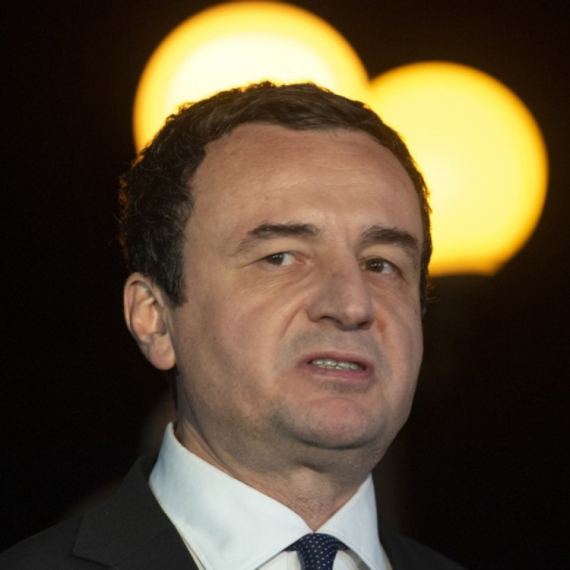

























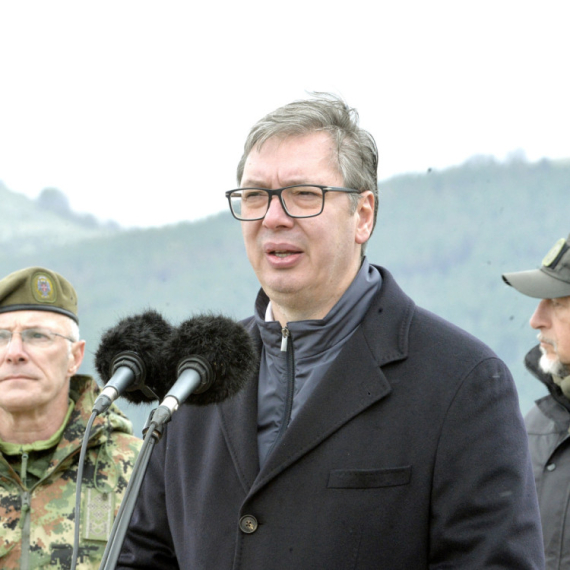
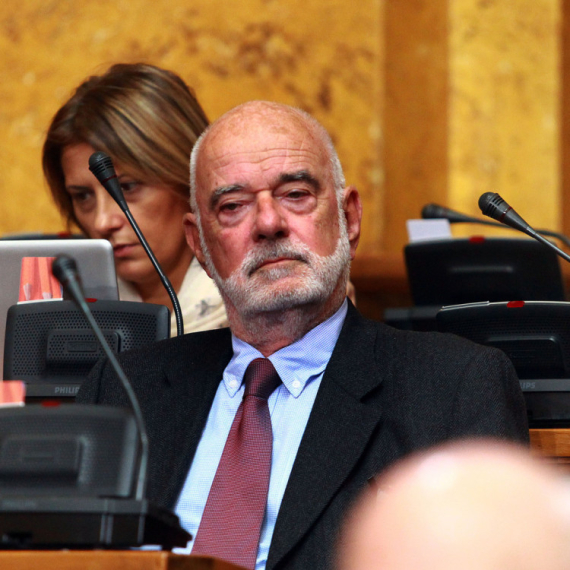







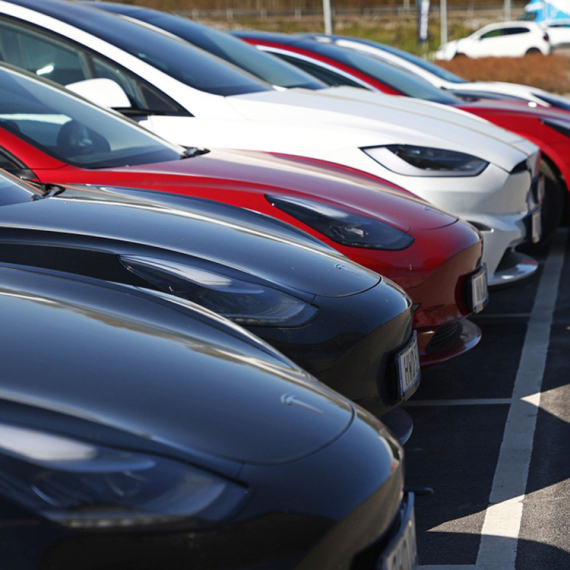



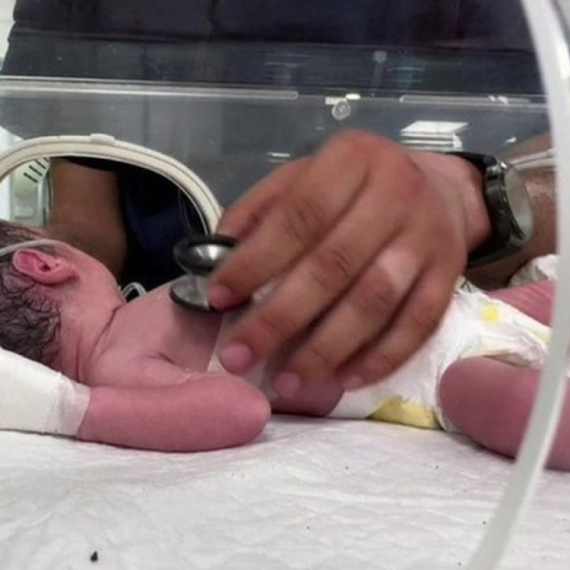

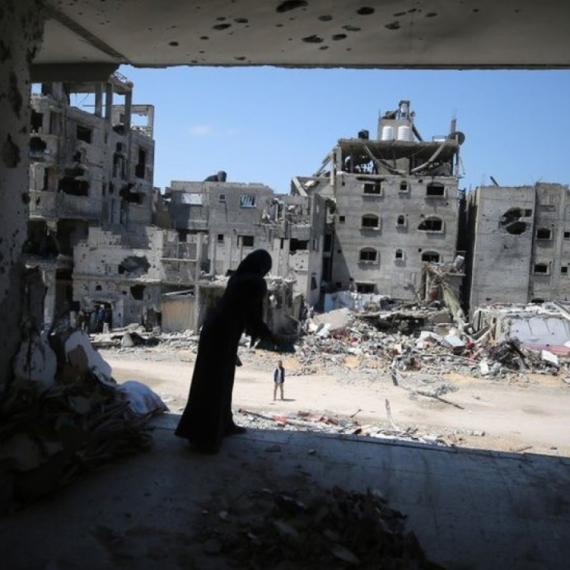

Komentari 0